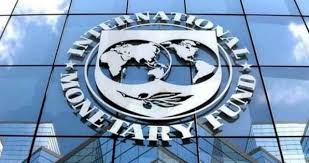HARARE, ZIMBABWE — The International Monetary Fund (IMF) is pressing Zimbabwe’s government to take bold and sustained steps to fix its economy. The global lender wants the country to show strict fiscal discipline, open up its foreign exchange market, and fully adopt the ZiG (Zimbabwe Gold) currency as the main monetary tool. These moves are seen as necessary if Zimbabwe is to break free from years of financial instability and return to the international lending scene.
The IMF’s firm stance was communicated during a visit by its mission team led by Wojciech Maliszewski, who is currently holding talks with Zimbabwe’s Treasury, led by Finance Minister Professor Mthuli Ncube, and other economic stakeholders. The mission is part of the Staff-Monitored Programme (SMP), which is a vital first step towards clearing Zimbabwe’s debt arrears and restoring its creditworthiness.
The IMF said Zimbabwe’s recent progress in economic stability is still fragile and warned that any backsliding could reverse gains. Maliszewski stressed that “fiscal discipline is the backbone of macroeconomic stability”, adding that public spending must remain under control to avoid inflation and macroeconomic imbalances.
In response, Finance Minister Ncube said the government remains committed to responsible spending. He explained that the upcoming Mid-Term Budget Review and Budget Strategy Paper will reflect this discipline across all departments. He said spending within limits is important for building investor confidence and promoting economic growth.
The IMF is also demanding a more transparent and efficient foreign exchange market. Zimbabwe’s current forex system has long been plagued by distortions. The gap between the official exchange rate and the parallel market (black market) rate has caused problems for businesses, investors, and importers. These distortions hurt economic planning and discourage foreign investment.
Maliszewski said Zimbabwe needs a “deeper and more liquid forex market” to allow for fair price discovery and to bring the official and parallel exchange rates closer together. This, he said, would encourage transparency, restore confidence in currency management, and help businesses plan better.
In recent months, Zimbabwe introduced a new currency, ZiG (Zimbabwe Gold), backed by gold and other reserves. While the IMF sees this as a stabilising tool, it insists that more needs to be done. Maliszewski said the ZiG must be widely accepted and used as the main national currency to restore monetary sovereignty.
Professor Ncube expressed optimism about ZiG, saying many businesses are already responding positively and making investment plans based on its stability. He said the aim is to reduce the country’s over-reliance on foreign currencies like the US dollar and strengthen confidence in Zimbabwe’s own currency system.
The IMF also acknowledged that inflation has gone down in recent months, which is a good sign. Businesses have reported better stability and are expanding operations. However, the Fund warned that continued progress depends on the government sticking to fiscal and monetary discipline.
Zimbabwe’s foreign debt remains a major hurdle. The country owes around US$21 billion, which has blocked its access to affordable international loans. Clearing this debt is key to opening up funding for roads, electricity, health care, and other public services. The current talks with the IMF under the SMP are meant to pave the way for debt relief and credit re-engagement.
Minister Ncube described the SMP as a “critical step” toward unlocking long-term financing and restoring Zimbabwe’s place in the global financial system. Maliszewski said the programme would help build creditor confidence and attract cheaper capital for development.
But the IMF is not only asking for financial discipline. It also wants Zimbabwe to implement structural reforms aimed at improving governance, strengthening institutions, and increasing transparency. Maliszewski said these changes are necessary for building a resilient economy and achieving the goals set under Zimbabwe’s Vision 2030 and National Development Strategy 2 (NDS2).
Professor Ncube agreed, saying that without better governance and stronger institutions, fiscal and monetary reforms will not be enough. He said the government is committed to pushing through these changes to drive long-term development.
The IMF warned that while Zimbabwe has made progress, that progress is still delicate. If the government does not keep its promises, the country could fall back into economic problems like runaway inflation, currency collapse, and investor flight.
Maliszewski closed by saying: “Sustained fiscal discipline, forex market deepening, and full adoption of the ZiG currency are non-negotiable if Zimbabwe is to build a resilient and inclusive economy.”
In conclusion, Zimbabwe’s path to recovery will depend on political will, policy consistency, and public sector accountability. The IMF’s message is clear: reform is no longer a choice — it is the only way forward.
